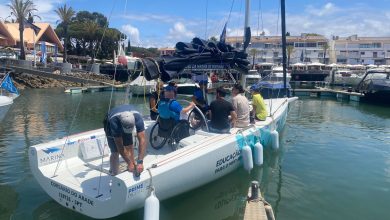It is called H2OforAll and the main objective of this ambitious international project, led by the University of Coimbra (UC), is to develop a set of innovative technologies that act in terms of prevention, monitoring and decontamination of drinking water, ensuring maximum water quality. we drink, as well as guidelines to support policymakers, both in terms of legislation and in terms of behaviour to be adopted by the population.
To achieve the proposed objectives, the project, led by Rui Martins, from the Chemical Engineering Department of the Faculty of Sciences and Technology of the University of Coimbra (FCTUC), has four million euros allocated by the European Union (EU) under the program. Horizon Europe. H2OforAll starts on November 1st and lasts for three years. In addition to Portugal, it involves researchers and companies from Germany, Belgium, Cyprus, Spain, Israel, the Netherlands, Poland, the United Kingdom and Sweden.
In general, the various project teams will develop cutting-edge technologies for monitoring the quality of water for domestic consumption, protecting drinking water sources and reducing the number of disinfection products in these waters.
Taking into account the severe phenomena caused by climate change, such as extreme drought, and contamination caused by human action, the deterioration of the sources where the water that will later reach our taps is collected tends to worsen, which requires greater amounts of disinfectants to ensure the quality of drinking water.
This reality, explains Rui Martins, makes it urgent to develop new methods and technologies that guarantee, in the present and in the future, «the maximum safety of drinking water. With the need to use more and more chlorine in the disinfection of drinking water, essential to prevent diseases, one of the consequences is the generation of so-called disinfection by-products (DBPs), chemicals produced as a result of the reaction between disinfectants and organic compounds present in the source water».
These disinfection by-products, if not identified and controlled, «can be harmful to human health and ecosystems”, underlines the FCTUC scientist. One of the objectives of the project, he adds, is precisely “to prevent the formation of these DBPs, using water pre-treatment processes that are able to remove compounds that are found there and that are promoters of these disinfection by-products. On the other hand, we intend to develop innovative alternative disinfection strategies that do not contain chemicals, using, for example, ultraviolet radiation, because by removing chlorine or reducing the amount of chlorine to be introduced into the water, we reduce the possibility of the formation of DBPs».
In terms of monitoring, H2OforAll proposes to develop technological solutions that allow controlling and monitoring of the entire course of water – from capture to distribution. Basically, explains the consortium leader, «we propose to find mechanisms to monitor what is happening, at any given moment, on the network. To this end, we will develop sensors suitable for monitoring water quality along the entire circuit and, from the data collected in several countries, create models capable of predicting the behaviour of water and DBPs along the distribution chains, to, if necessary, implement corrective measures in a timely manner.» In addition, the project also includes toxicity studies of disinfection by-products, essential to assess the impact of DBPs, both on human health and on the balance of ecosystems.
All technological solutions developed under the project will be tested in a pilot installation created by the company Adventech. Subsequently, a case study will be carried out in a real environment in the municipal company Águas de Coimbra, which is a partner in the project. The choice is justified by the «recognized quality of the water of Águas de Coimbra, which presents us with great challenges, especially in terms of validation, that is, the technologies we develop will have to be highly sensitive», points out Rui Martins.
At the end of the project, the consortium will also draw up a set of technical recommendations for prevention, to avoid contamination of sources of drinking water, and guidelines that can contribute to the change of European legislation in this matter and the behaviour to be adopted by the population. The researchers believe that H2OforAll will have a major impact, allowing “to remedy current and future environmental problems, which will be increasingly serious due to the scarcity of drinking water and due to extreme weather phenomena”.
At UC, the project involves four research centres: Research Center for Chemical Process Engineering and Forest Products (CIEPQPF), Coimbra Chemistry Center (CQC), Center for Mechanical Engineering, Materials and Processes (CEMMPRE) and Instituto of Systems and Computer Engineering of Coimbra (INESC Coimbra), in a cooperation platform between researchers Rui Martins, Luísa Durães, João Gomes, Igor Reva, Artur Valente, Paula Morais and Nuno Simões.
Follow us on Facebook, Twitter, Instagram, Youtube, and TikTok and see the exclusive content for social networks.






